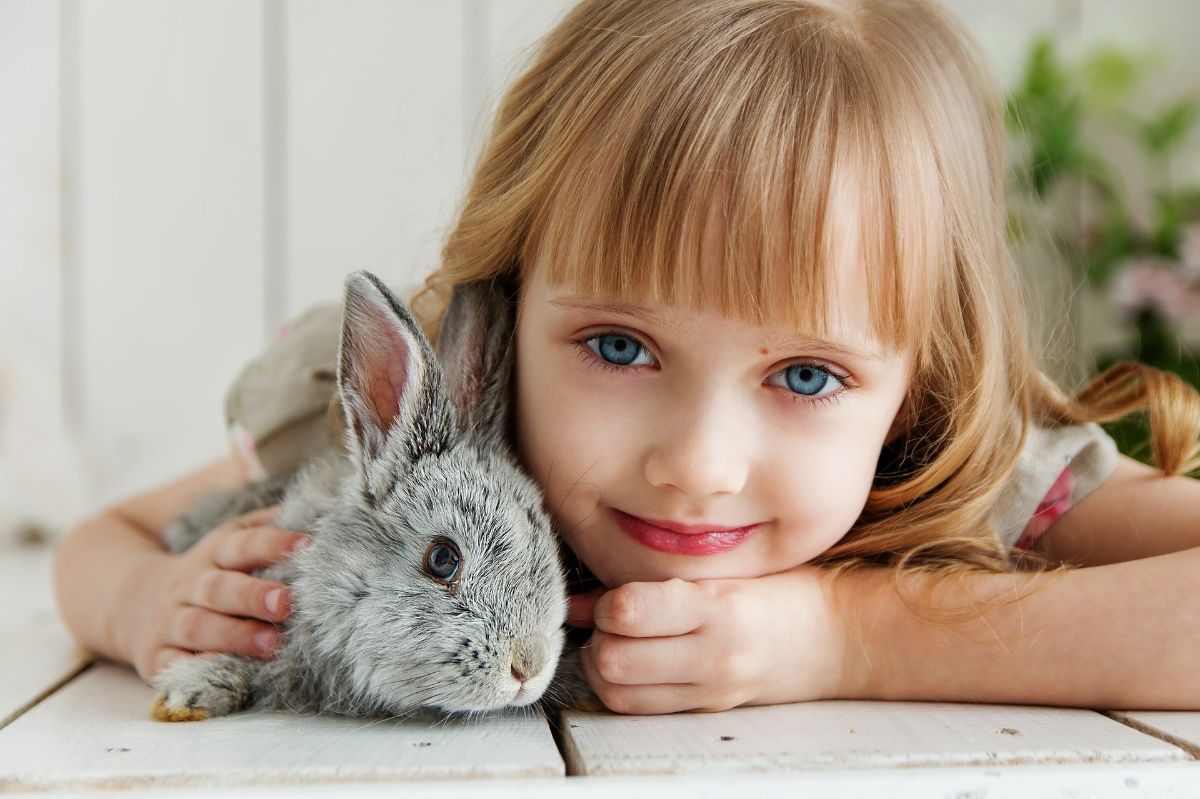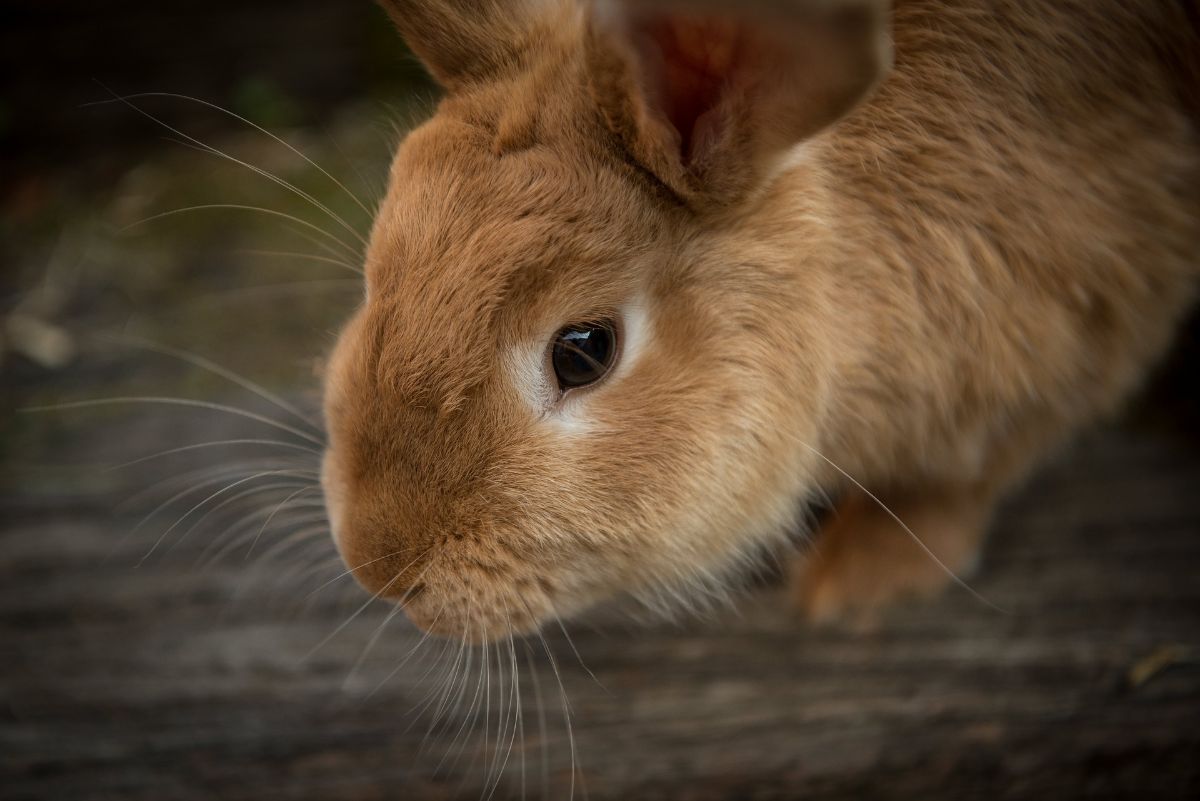
Having a rabbit as a pet today is not unreasonable, many share their day to day with one. In addition, they are animals that can live for several years if they are well cared for. However, you should keep in mind that there are rabbit diseases from which you have to protect them.
Vaccinations, periodic check-ups with the vet, a good diet and above all meeting the needs of this are essential tasks so that he does not get sick or to realize the symptoms that warn of a problem. But, What are rabbit diseases? We tell you about them.
Symptoms that a rabbit is sick

Before presenting you with the different diseases in rabbits, you should know how to detect problems in time, since knowing if something is not going well, in a first "state" can end up saving your pet's life.
When you are attentive to your rabbit, you know when his behavior changes, or when there's something about him that makes you doubt if he's okay. In general, those symptoms are the following:
- He stops eating or simply eats less than what is usual for him.
- You start to lose weight for no apparent reason.
- Tilt your head to one side.
- He doesn't move much, nor does he feel like playing with you.
- You have diarrhea or, on the contrary, you cannot go to the bathroom for more than 48 hours.
- You have lumps or inflammations on your body, breasts…
- He has difficulty breathing, either with guttural sounds, whistles, etc.
- His eyes turn watery, red.
If any of this happens and you see that it is not normal, it is best that you go to the vet to take a look and see if it is something minor or, on the contrary, we are talking about a serious problem.
[related url=»https://infoanimales.net/rabbits/que-comen-los-rabbits/»]
The causes why your rabbit can get sick

Any of the rabbit diseases will worry you, since it puts your pet in a situation that is not the best for him (and can even endanger his life). Therefore, knowing what can make your rabbit sick is important.
La Most rabbit diseases are related to the following aspects:
- A bad diet. Either because you give him a low-quality meal, or because it was in bad shape.
- A cage that is not the best. For example, that it is too small, with which it can hurt itself...
- A situation of continuous stress. Rabbits are animals that like tranquility and subjecting them to stressful situations makes them sick. Therefore, they need a quiet place.
- Bad hygiene. It is just as important that his diet is adequate as that he is well cared for. In this case, not paying attention to its hygiene, both in the animal and in the cage, can have consequences.
- A high temperature. Rabbits are not like people; They can't stand certain temperatures.
Rabbit diseases: what are there?

The first thing you should know about rabbit diseases is that there are many and very varied. In fact, experts classify them into five large groups: parasitic, genetic, bacterial, fungal and viral. Talking to you about each and every one of them can take forever, but we do want you to know, from each of the groups, the most common diseases that can affect your rabbit.
Rabbit diseases of parasitic origin
These types of problems can give rise to two subgroups, internal parasites and external parasites. In general, the diseases that you can suffer from are:
- Scabies. This disease causes rabbits to itch, which when scratching causes wounds and scabs. It can be treated.
- Lice or fleas.
- Diarrhea
- coliform infection. It is very similar to diarrhea, only that it is stronger and causes severe dehydration of the rabbit if it is not stopped in time.
genetic diseases
Genetic diseases are those that they predispose rabbits to suffer from them, because they are in their genes. In fact, they are problems that they have often and that are not so dangerous if they are kept at bay.
- Overgrowth of the teeth.
- Mandible malformation.
Rabbit diseases of bacterial and fungal origin
We unite these two large groups. Yes, each of them It is produced by the presence of either bacteria or fungi. The most common are the following:
- Conjunctivitis. It is a problem related to the eyes, where they will be watery, inflamed and even painful.
- Otitis or ear problems. In this case it affects the ears, being able to make you turn your head to the side of the ear that hurts.
- Pasteurellosis. It is characterized by sneezing, mucus, snoring... Fortunately, antibiotics are effective against this disease.
- Abscesses on the skin. We are specifically talking about bumps on the skin that can come out and are full of pus. These can break the skin and cause the pus to come out, so the problem must be treated (either with periodic cures or by removing the lumps).
- tularemia. It is one of the most complicated to prevent because it does not have previous symptoms. The only symptom it causes is that the animal does not eat, and that causes it to end up dying in 2-4 days.
- Pneumonia. Like humans, pneumonia is a serious problem for them, since it causes difficulty breathing, mucus, snoring, coughing, whistling... If the bacteria reaches the lungs, it can endanger the life of the animal.
- Mastitis. It is a breast infection.
- Tub. Ringworm is produced by a fungus and causes the animal to lose its hair in certain areas, causing scabs to appear on the skin. It mainly affects the face.
- Coccidiosis. This is one of the most dangerous for rabbits. Coccidia are microorganisms that the rabbit itself has to maintain a balance in its digestive system. But when these get out of control they can cause the death of the animal.
- Ulcerated tarsi. They are wounds on the legs with infection.
Rabbit diseases of viral origin
Finally, the diseases that are caused by a virus, and that most commonly attack rabbits, are the following:
- Rage. Rabies is a disease that has no cure. However, today it is practically eradicated in almost the entire world, and vaccination prevents it, which is why you should check your card and see that the vaccine takes effect.
- Myxomatosis. Among its symptoms is not eating, having swollen eyelids, as well as lips, breasts, genitals... There is no treatment, and only the vaccine can prevent the problem.
- Hemorrhagic fever. It is spread through the nose, eyes or mouth. It is characterized by a very nervous rabbit, with symptoms of apathy, anorexia and problems breathing or staying still. In addition, it can cause seizures, nosebleeds... There is also a vaccine because if it is infected, you can die in a few hours.